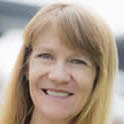New Study Finds Half of New Mothers Leave STEM Careers After Having Their First Child
Posted on Feb 27, 2019 | Comments 0

Dr. Cech
According to a new study by scholars at the University of Michigan and the University of California, San Diego, 43 percent of new mothers and 23 percent of new fathers leave their full-time STEM jobs within four to seven years of the birth or adoption of their first child. The researchers believe that their findings may be major contributing factor in the overall gender gap in STEM.
“Not only is parenthood an important driver of gender imbalance in STEM employment, both mothers and fathers appear to encounter difficulties reconciling caregiving with STEM careers,” said the study’s lead author Erin Cech, assistant professor of sociology at the University of Michigan.
The study also found that new mothers are more likely than new fathers to switch to part-time work. About 1 in 10 new mothers will continue working in STEM on a part-time basis, despite drawbacks such as less pay, less benefits, and less advancement opportunities.

Dr. Blair-Loy
“Our results indicate the need for employers to establish highly valued and well-paid part-time options as well as ramp-up policies that allow part-time STEM professionals to transition back into full-time work without long-term career penalties,” said co-author Mary Blair-Loy, professor of sociology at the University of California, San Diego.
Additionally, the results found that parents who do leave the STEM workforce are unlikely to return by the time their children are old enough to attend school.
“These findings point to the importance of cultural shifts within STEM to value the contributions of STEM professionals with children and the need for creative organizational solutions to help these skilled STEM professionals navigate new caregiving responsibilities alongside their STEM work,” said Dr. Cech
The full study, “The Changing Career Trajectories of New Parents in STEM,” was published in the Proceedings of the National Academy of Sciences. It may be accessed here.
Filed Under: Research/Study








